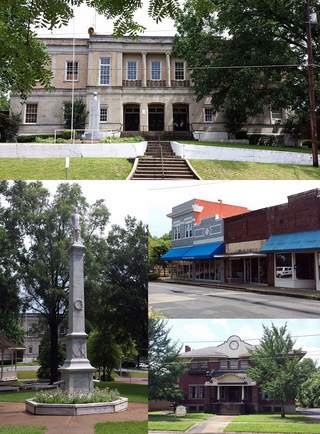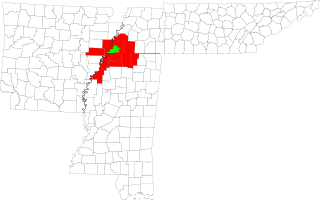
Louisa May Alcott was an American novelist, short story writer, and poet best known as the author of the novel Little Women (1868) and its sequels Little Men (1871) and Jo's Boys (1886). Raised in New England by her transcendentalist parents, Abigail May and Amos Bronson Alcott, she grew up among many well-known intellectuals of the day, including Margaret Fuller, Ralph Waldo Emerson, Nathaniel Hawthorne, Henry David Thoreau, and Henry Wadsworth Longfellow.

Richard Nathaniel Wright was an American author of novels, short stories, poems, and non-fiction. Much of his literature concerns racial themes, especially related to the plight of African Americans during the late 19th to mid-20th centuries suffering discrimination and violence. Literary critics believe his work helped change race relations in the United States in the mid-20th century.

Michael John Harrison, known for publication purposes primarily as M. John Harrison, is an English author and literary critic. His work includes the Viriconium sequence of novels and short stories (1971–1984), Climbers (1989), and the Kefahuchi Tract trilogy, which consists of Light (2002), Nova Swing (2006) and Empty Space (2012).
Barry Hannah was an American novelist and short story writer from Mississippi. Hannah was born in Meridian, Mississippi, on April 23, 1942, and grew up in Clinton, Mississippi. He wrote eight novels and five short story collections.

Cross County is a rural Northeast Arkansas county in the Arkansas Delta. Created as Arkansas's 53rd county on November 15, 1862, Cross County contains four incorporated municipalities, including Wynne, the county seat and most populous city. It is named for Confederate Colonel David C. Cross, a political leader in the area.

Jonesboro is a city located on Crowley's Ridge in the northeastern corner of the U.S. State of Arkansas. Jonesboro is one of two county seats of Craighead County. In 2023, the city had a population of 81,969 and was the fifth-largest city in Arkansas at the time. In 2023, the Jonesboro metropolitan area had a population of 135,287 and a population of 179,932 in the Jonesboro-Paragould Combined Statistical Area.

Wynne is the county seat and largest city of Cross County, Arkansas, United States. The population was 8,314 at the 2020 Census. Nestled between the Arkansas Delta and Crowley's Ridge, Wynne is the closest city to the second-largest state park in Arkansas, Village Creek State Park.

Marianna is a town in and the county seat of Lee County, Arkansas, United States. As of the 2010 census it had a population of 4,115, but by 2018 the population had dropped to an estimated 3,477.

Forrest City is a city in St. Francis County, Arkansas, United States, and the county seat. It was named for General Nathan Bedford Forrest, a notable Confederate military leader. Shortly after the end of the Civil War, he had a construction crew camped here, who were completing a railroad between Memphis and Little Rock.

Thomas Coraghessan Boyle is an American novelist and short story writer. Since the mid-1970s, he has published nineteen novels and more than 150 short stories. He won the PEN/Faulkner award in 1988, for his third novel, World's End, which recounts 300 years in upstate New York.
This article contains information about the literary events and publications of 1987.

The Ouachita Mountains, simply referred to as the Ouachitas, are a mountain range in western Arkansas and southeastern Oklahoma. They are formed by a thick succession of highly deformed Paleozoic strata constituting the Ouachita Fold and Thrust Belt, one of the important orogenic belts of North America. The Ouachitas continue in the subsurface to the northeast, where they make a poorly understood connection with the Appalachians and to the southwest, where they join with the Marathon uplift area of West Texas. Together with the Ozark Plateaus, the Ouachitas form the U.S. Interior Highlands. The highest natural point is Mount Magazine at 2,753 feet (839 m).

The Memphis–Clarksdale-Forrest City Combined Statistical Area, TN–MS–AR (CSA) is the commercial and cultural hub of The Mid-South or Ark-Miss-Tenn. The census-defined combined statistical area covers eleven counties in three states, Tennessee, Mississippi, and Arkansas. As of 2010 census, the Memphis metropolitan area had a population of 1,324,108. The Forrest City, Arkansas Micropolitan area was added to the Memphis area in 2012 to form the Memphis–Forrest City Combined Statistical area. In 2023 the Clarksdale, Mississippi Micropolitan area was also added to form the new Memphis-Clarksdale-Forrest City Combined Statistical Area which as of 2023 had a population of roughly 1.4 million people according to census estimates.

Charlaine Harris Schulz is an American author who specializes in mysteries. She is best known for her book series The Southern Vampire Mysteries, which was adapted as the TV series True Blood. The television show was a critical and financial success for HBO, running seven seasons, from 2008 through 2014.

Crowley's Ridge Parkway is a 212.0-mile-long (341.2 km) National Scenic Byway in northeast Arkansas and the Missouri Bootheel along Crowley's Ridge in the United States. Motorists can access the parkway from US Route 49 (US 49) at its southern terminus near the Helena Bridge over the Mississippi River outside Helena-West Helena, Arkansas, or from Missouri Route 25 (Route 25) near Kennett, Missouri. The parkway runs along Crowley's Ridge, a unique geological formation, and also parts of the St. Francis National Forest, the Mississippi River and the Mississippi Alluvial Plain. Along the route are many National Register of Historic Places properties, Civil War battlefields, parks, and other archeological and culturally significant points.

Philip Lee Williams is an American novelist, poet, and essayist noted for his explorations of the natural world, intense human relationships, and aging. A native of Athens, Georgia, he grew up in the nearby town of Madison. He is the winner of many literary awards including the 2004 Michael Shaara Prize for his novel A Distant Flame, an examination of southerners who were against the Confederacy’s position in the American Civil War. He is also a winner of the Townsend Prize for Fiction for his novel The Heart of a Distant Forest, and has been named Georgia Author of the Year four times. In 2007, he was recipient of a Georgia Governor’s Award in the Humanities. Williams's The Divine Comics: A Vaudeville Show in Three Acts, a 1000-page re-imagining of Dante's magnum opus, was published in the fall of 2011. His latest novel, Emerson's Brother, came out in May 2012 from Mercer University Press
Sherrie Flick is an American fiction writer whose work has appeared in Prairie Schooner, North American Review, Quarterly West, Puerto del Sol, Weave Magazine, Quick Fiction, Lit Hub, and other literary magazines. Flick is also a regular contributor to the Pittsburgh Post-Gazette, which publishes her column "In a Writer's Urban Garden." In 2021, her work was performed by actress Marin Ireland for Symphony Space.
Speer Morgan is an American novelist, short story writer, and editor.

Mansoura Ez-Eldin is an Egyptian novelist and journalist.
The lynching of Henry Lowry, on January 26, 1921, was the murder of an African-American man, Henry Lowry, by a mob of white vigilantes in Arkansas. Lowry, a tenant farmer, had been on the run after a deadly shootout at the house of planter O. T. Craig on Christmas Day of 1920. Lowry went into hiding in El Paso, Texas; when he was discovered and extradited by train, a group of armed white men boarded the train in Sardis, Mississippi, and took Lowry to Nodena, near Wilson, Arkansas. He was doused in gasoline and burned alive before a mob of 500. A reporter from the Memphis Press witnessed the event, and word of the lynching soon spread around the country, aided by an article William Pickens wrote for The Nation, in which he described eastern Arkansas as "the American Congo".














